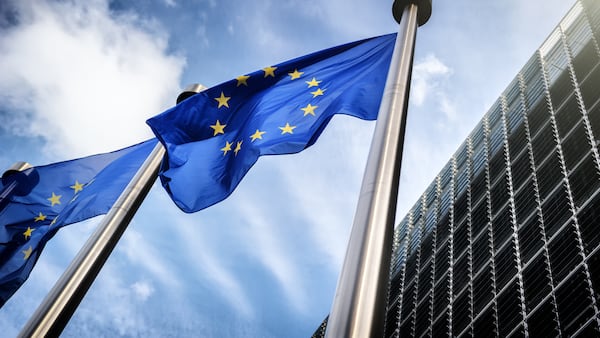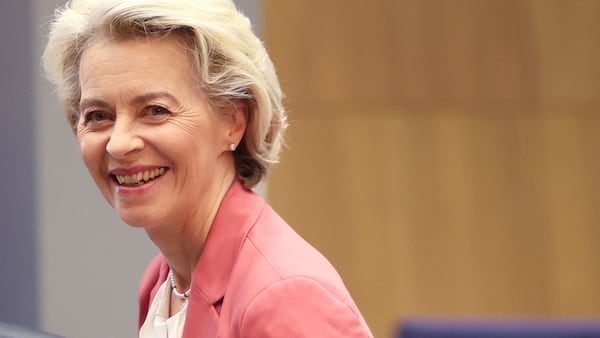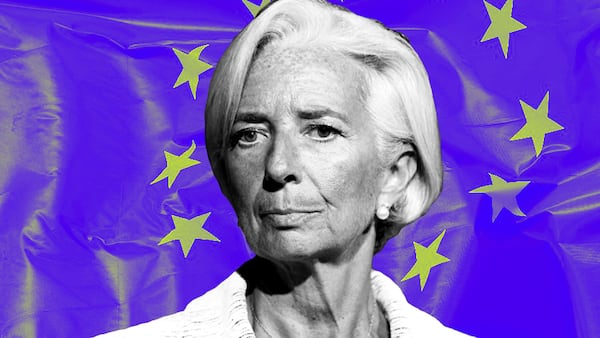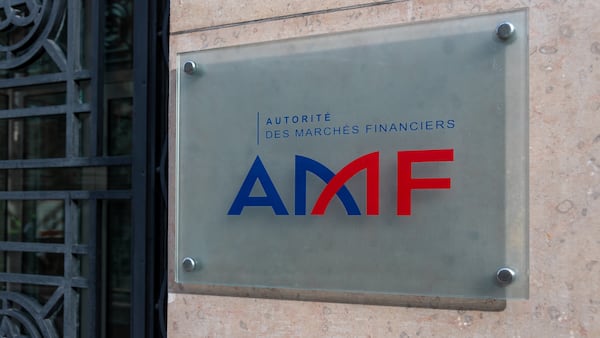- EU legislators need to ‘let the industry breathe’ after years of producing crypto regulations, officials told DL News at a Brussels event.
- The EU is ready to shift its focus from crypto as a new financial service to blockchain as a technology for public infrastructure.
- Belgium’s upcoming European Council presidency is preparing to push its “Europeum” project.
- As European elections approach, blockchain sector reps have set down their agenda for the next five-year term.
Europe pushed ahead to lay down comprehensive rules for crypto assets with the aim of leaving behind a blueprint for the world to follow.
Now, officials are calling for a pause to digest all of the action.
At the same time, Brussels is shifting its gaze to the potential of blockchain technology to upgrade public services and move the EU ahead in the “digital race” before the next European elections.
“We should really, instead of proposing more and more new legislation, take our time and focus on proper implementation,” Ondřej Kovařík, a centrist lawmaker, told DL News on the sidelines of a Brussels blockchain event on Thursday.
‘If we really want to make them jealous, we need to properly implement and fully apply MiCA.’
— Ondřej Kovařík, European Parliament
“This is a good time to take a breath,” said the Czech lawmaker, who was a co-architect of the European Union’s landmark Markets in Crypto-Assets regulation in the European Parliament.
MiCA is a comprehensive rulebook on crypto licensing and issuance. Currently, regulators are ironing out technical details of the laws that will go live by the start of 2025.
Still, it is not the only EU crypto regulation. The Brussels legislative machinery has also spat out digital asset rules on anti-money laundering, bank capital requirements, tax reporting, and cyber security.
European institutions are wrapping up their crypto policies set out in 2019. And EU authorities have been closely watching the fast-moving crypto and DeFi industries since.
Now, it’s all about transition.
“We have harvested all of the low-hanging fruit,” said Joachim Schwerin, principal economist in the European Commission’s unit for internal markets and industry.
The commission is the executive engine for the legislative process in the EU.
Schwerin said they are now “ripe” to discuss the more abstract levels of DeFi, for comprehending interoperability, privacy, and identity in a fully decentralised domain.
This comes as a stark contrast to the regulatory environment in the US. Across the Atlantic, crypto firms are struggling to navigate US regulators’ harsh enforcement with no bespoke rulebook on the horizon.
“I hope they’re a bit jealous,” Kovařík said about the US industry. “But if we really want to make them jealous, we need to properly implement and fully apply MiCA.
“At this point we have to be cautious. We have a good regulation on paper, but the real success lies in its good application.”
And in the UK the crypto sector may relate to regulation overwhelm. Firms offering crypto services to the UK saw a firehose of laws this autumn that drove some firms to fold up their local operations.
Blockchain vision
In the Brussels bubble, industry and officials are preparing for a significant shift. The European elections in mid-2024 are an opportunity to reshape the 27-nation bloc’s priorities.
“We need to slow down on regulation and give it time for implementation,” echoed Mathieu Michel, Belgium’s secretary of state for digitalisation.
Michel is preparing to take the reins of the European Council in January 2024, when Belgium steps into a six-month rotating presidency.
The term will cover the election period and the transition into the EU’s new priorities.
At the top of his agenda is building a political institution dedicated to rolling out an EU-wide blockchain infrastructure he calls “Europeum.” Nine countries have agreed to operate nodes in the network.
Blockchain can potentially support applications from supply chain management and ensuring product authenticity, to storing digital identities where individuals own their data, to reimagining legal contracts that update automatically. And it can track carbon emissions transparently.
A manifesto
EU officials are steering towards blockchain technology to back EU goals on sustainability and digital transformation of public services. That’s a step away from the focus on blockchain through digital finance that marked the last five-year term.
And the industry is making sure its voice will be heard, once the EU’s new leaders step in.
Four of Europe’s blockchain trade associations presented a vision for the next five-year political mandate. The hope is to make sure Europe doesn’t lag in global innovation.
“We want a digital future which is also sustainable, which is also creating a more just society for all of its citizens,” said Tommaso Astazi, head of regulatory affairs at Blockchain for Europe, which represents giants including Coinbase, Binance, and Kraken.
The manifesto outlines economic, social, and environmental use cases for blockchain.
“It’s a source of inspiration, which we take very seriously,” said the EU Commission’s Schwerin about the manifesto.
The question is, can the commission put its money where its mouth is? While the EU sits on billion-euro pots of funding for digitisation and innovation, the bloc notoriously lags behind its competition from Asia and North America.
Still, the real value is not in the financing that the EU Commission provides, said a senior EU official, but in creating a business environment where solutions can be scaled up.
The EU’s blockchain agenda has a “very practical challenge in terms of resources, which means that we need to involve the private sector more to tell us very clearly what they need,” said Schwerin.
And ultimately, Europe is looking to shift some resources of the young industry to supporting the public good.
“There’s an asymmetry in the way the technology is embraced by private and by public entities,” Kovarik said. Law enforcement or making public authorities more effective could benefit from a blockchain revamp, he said.
“It’s actually very good that we don’t lose [blockchain] from our focus, because it’s a technology that has been undergoing constant development,” Kovařík added.
Inbar is a regulatory correspondent based in Brussels. Contact her at inbar@dlnews.com.









